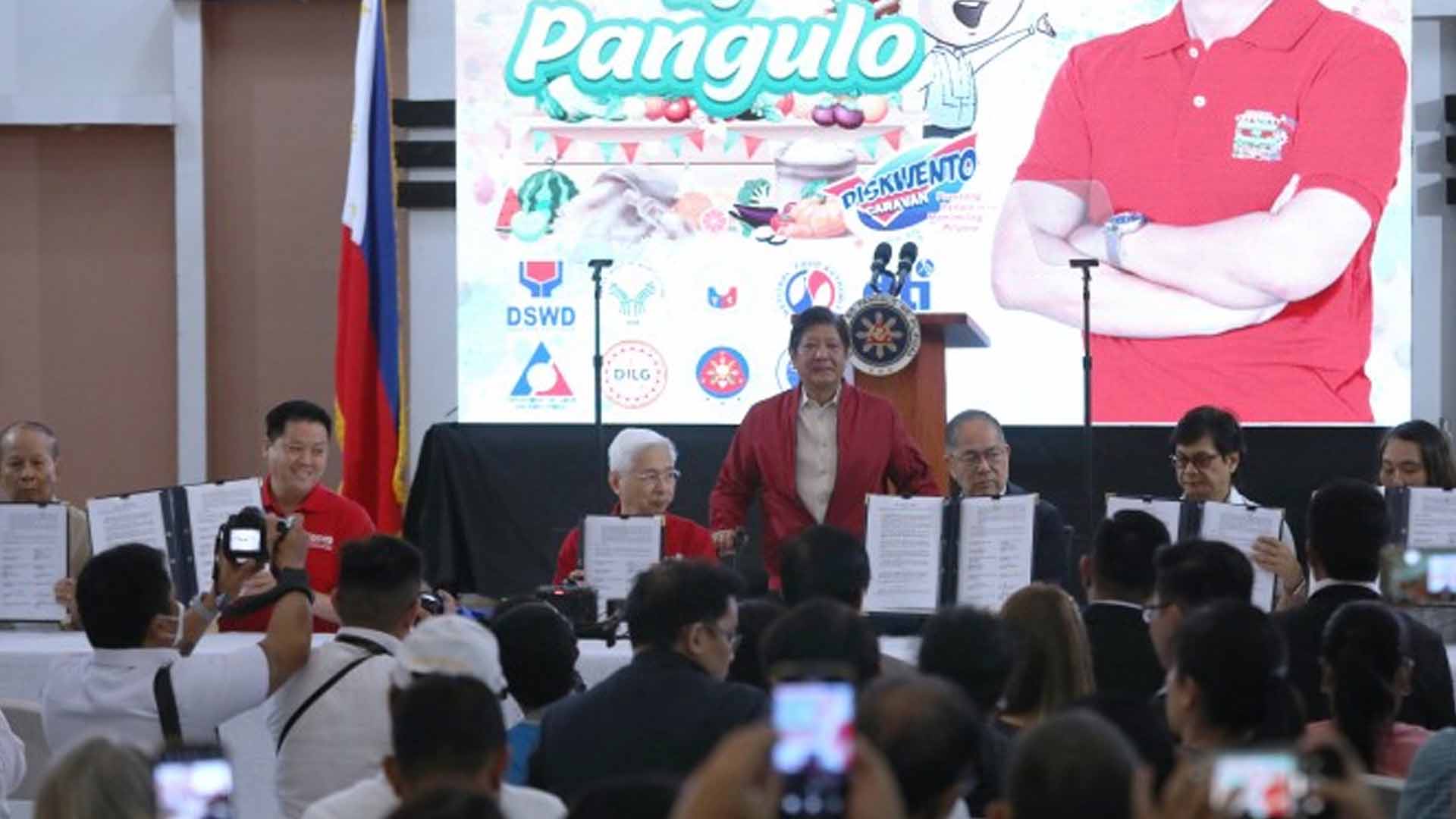Government agencies on Monday signed a memorandum of agreement (MOA) which aims to institutionalize and sustain the establishment of the Kadiwa ng Pangulo (KNP) at the local level.
The ceremonial signing, which was held at the Provincial Capitol of San Fernando, Pampanga, was witnessed by President Ferdinand R. Marcos Jr.
In his message, Marcos said the distribution of affordable food will not be possible if the national government and the local government do not work together.
“Kaya’t ito’y isa na namang magandang halimbawa para ipakita kung papaano… nagtutulungan, hindi lamang ang national government, hindi lamang ang mga iba’t ibang ahensiya, departamento ng national government, kundi pati na rin ang mga local governments. (So this is another good example to show how… we work together, not only the national government, not only the different agencies, departments of the national government, but also the local government),” he added.
The Kadiwa program is a farm-to-consumer market chain that eliminates intermediaries, allowing local producers to generate higher income by selling their produce directly to consumers.
The MOA on the KNP was entered into by the Department of Agriculture (DA), Department of Trade and Industry (DTI), Department of Labor and Employment (DOLE), Department of Social Welfare and Development (DSWD), Department of the Interior and Local Government (DILG), Presidential Communications Office and Presidential Management Staff.
Under the agreement, the DA shall serve as the lead convenor of the KNP operations, while the DTI, DOLE and DILG shall serve as co-convenors.
As of June 16 this year, there are 342 Kadiwa outlets nationwide.
During the event, Marcos cited the need to boost agricultural production to sustain the Kadiwa program and maintain affordable prices of basic commodities that favor consumers, which can be done with the assistance of various sectors.
To attain this goal, Marcos said the DA and other government agencies are working to boost grain and fish production, as well as finding solutions to the diseases that plague the livestock and poultry industries.
In the fishery sector, he said the government is putting up cold storage facilities in coastal areas to minimize or prevent spoilage, which he said could reach up to 20 to 30 percent.
Marcos said the government is closely monitoring fishing grounds that can be developed to increase fish production. (PNA)




















